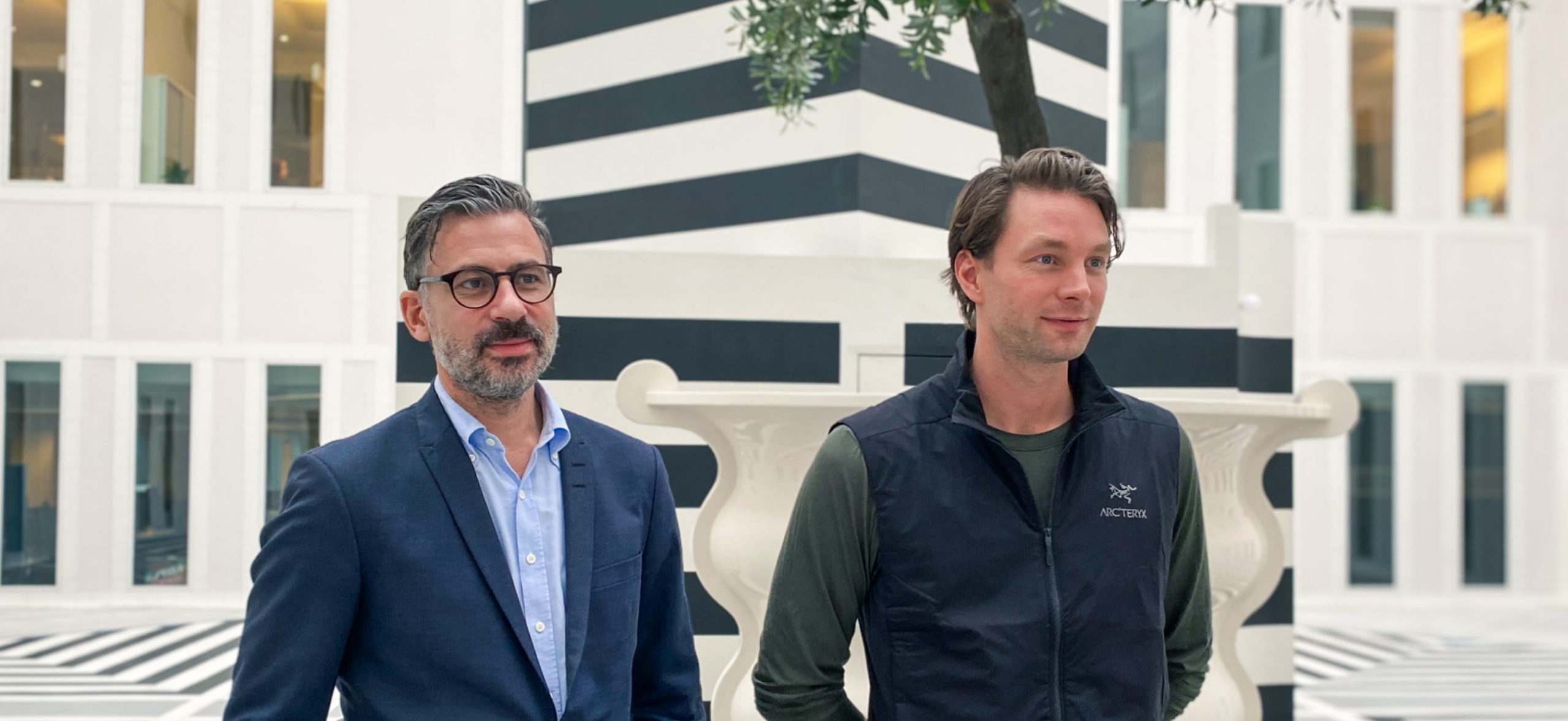Over the past four years, Vakanta has grown its turnover by 4,500% and thereby place second in Deloitte Sweden Technology Fast 50, which ranks the fastest growing tech companies in the country. The award is seen as a clear indication of where the market is going. With the gig economy expanding, talent access and control of the external workforce is getting increasingly critical to maintaining a competitive edge.
“Swedish companies are very competitive and they generally know their employees well. But there are few who keep tabs on their consultants – and these are often key to value creation”, comments Vakanta founder Johan Hanson. “Vakanta fixes that weak link, so we expect further growth as the gig economy keeps accelerating”.
Together with Samir Mohsen, Johan founded Vakanta in 2013. Both had then worked in consultant management for many years, identifying a number of fundamental problems in the industry. Hiring managers could spend over 60 hours per year talking to consultancy salespeople on the phone – without necessarily securing the right competence. Companies lost touch with important suppliers when managers changed jobs. Countless hours were lost to inefficient administration, and there weren’t many company leaders who knew how many consultants worked within their organisation, what they were doing there – or how much they cost. Johan and Samir saw examples of companies that thought they were spending 100M SEK a year on consultants, when in actual fact they were spending over 250M SEK.
“This stands in stark contrast to Sweden’s leading position in other business areas”, says Samir. “Sweden has been named the world’s first digital economy and we’re in second place on the UN’s Global Innovation Index. Yet Swedish companies exercise as poor a control of their external workforce as the rest of the world. With competition for the best talent already fierce, that situation is simply untenable.”
The right tool for everyone
In founding Vakanta, Johan and Samir were soon joined by Robin Ivier, an IT expert with a previous career in HR tech. The trio quickly decided not to limit their customers’ options by promoting their own consultants. Vakanta should instead offer a VMS (Vendor Management System) that standardises and streamlines the collaboration between all involved parties: HR, procurement and project managers on the customer side; independent agencies and consultants on the supplier side. Customers should always be able to freely communicate and negotiate with their suppliers, and real-time data from the entire organisation should provide company leaders with the knowledge required to create a strong strategy for their future external workforce. All logistics and administration should also be digitised and simplified.
Furthermore, as opposed to competing VMS models offered by international IT giants, Vakanta should not be based on complex HR systems. With so many different user categories, Johan and Samir wanted to offer an intuitive language and a process that could be immediately adopted by experts and laypeople alike.
To maintain a user perspective, Johan and Samir started out by creating a prototype, which they then proceeded to develop together with their first customers. “We spent several years on this creative collaboration”, says Samir, “but it paid dividends. Now we’ve got a VMS that both project managers and consultants learn to use within five minutes.”
Ushering in a new future
Today, Vakanta offers a comprehensive VMS as well as a wide network of suppliers. Over a 1,000 independent agencies and consultants are connected to the Vakanta VMS, which covers all aspects of consultant management: network, find, hire, manage, pay and analyse. And with existing large customers such as Bonnier News, Bosch and Northvolt, Vakanta is scaling in markets abroad.
“It’s naturally very exciting to receive Deloitte’s award for Sweden’s second-fastest growing tech company”, says Johan. “But we’ve been aware of the market trend ever since we set out. Company leaders have always said that their staff is their greatest asset, and with the external workforce now representing over 40% of global labour costs… the way Samir and I saw it, it was only a matter of time before our concept would take off. And now it’s happening in a big way!”
